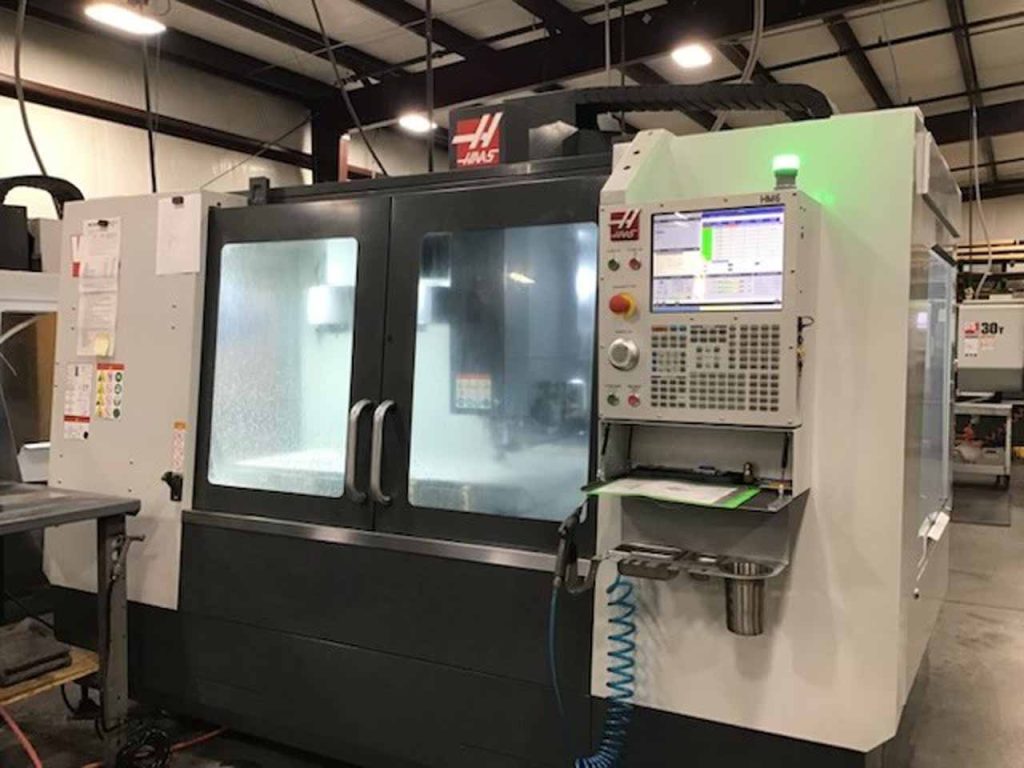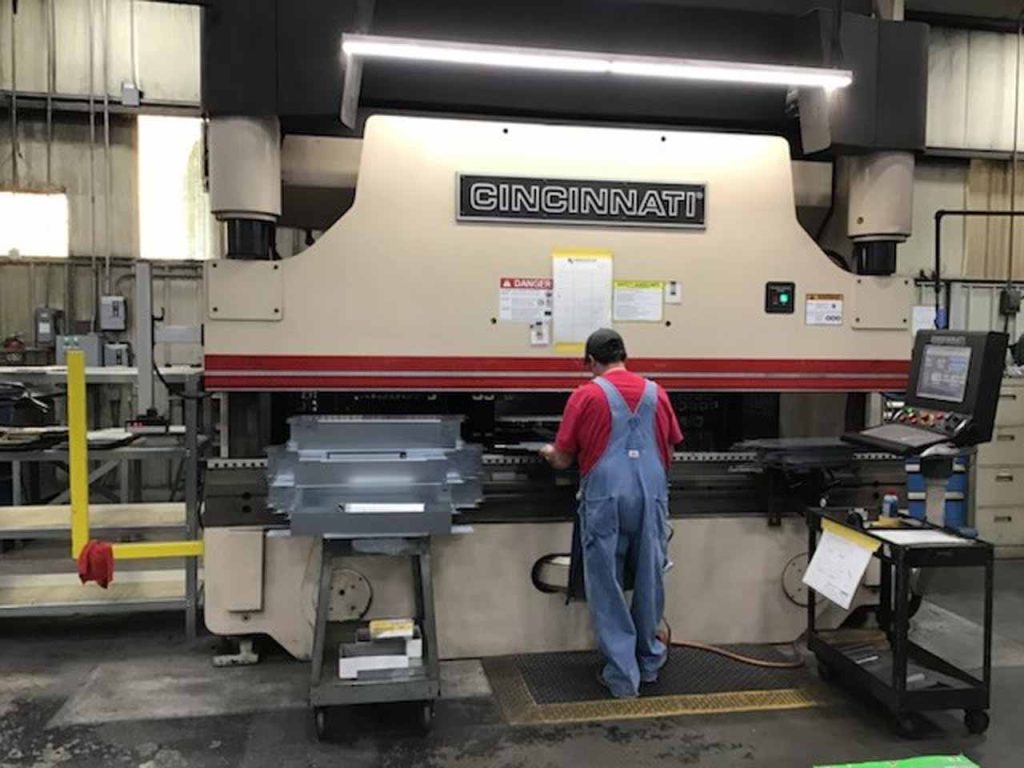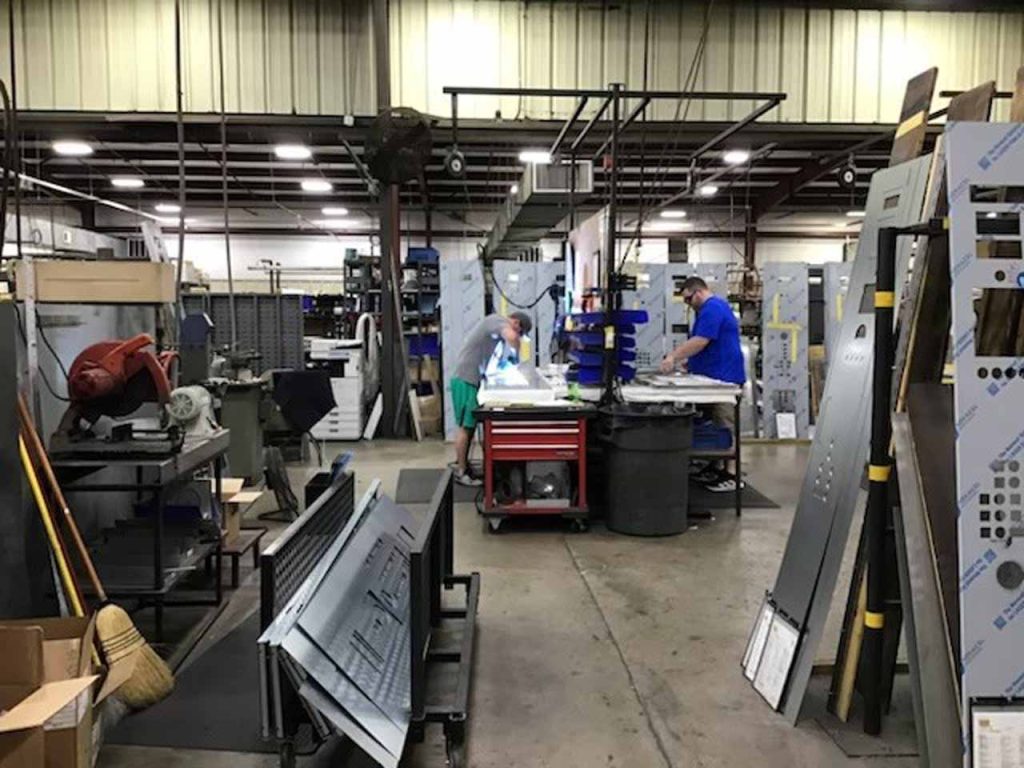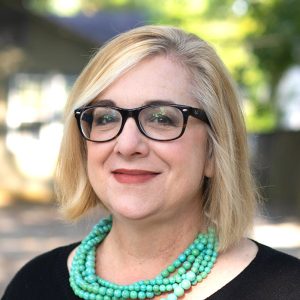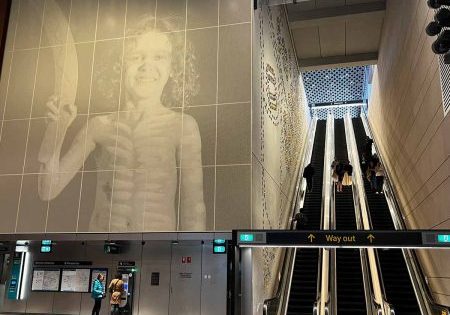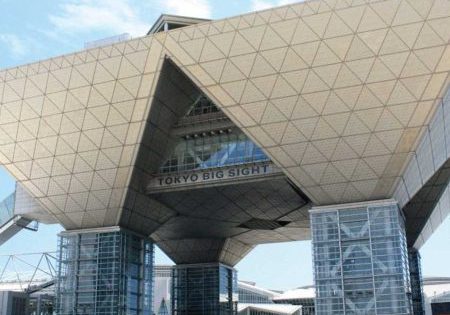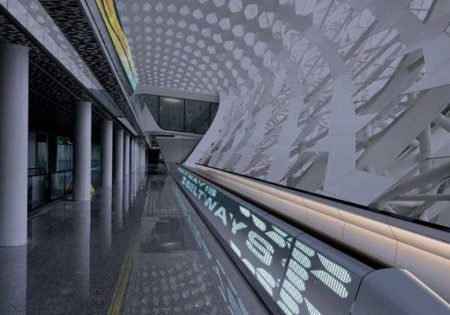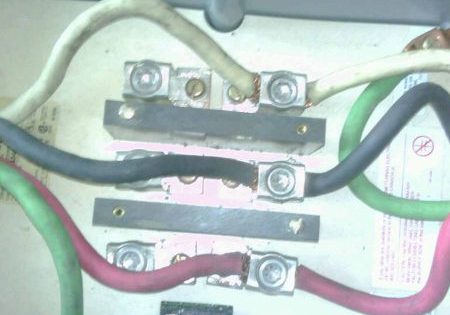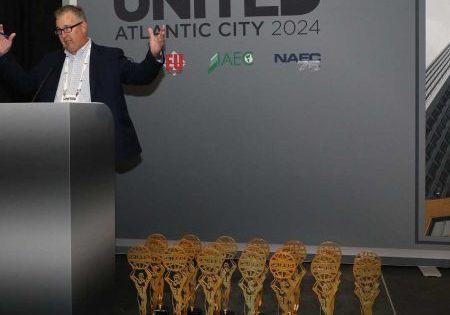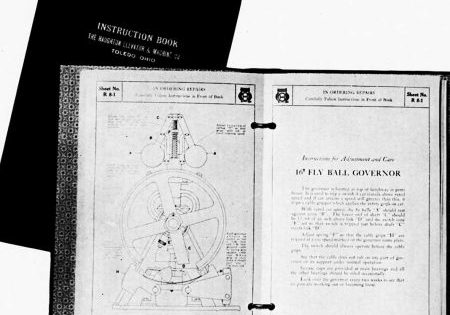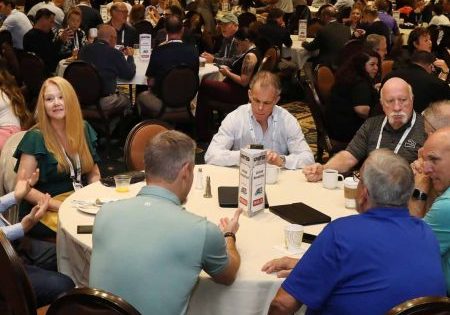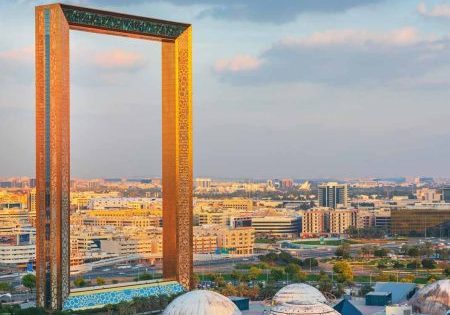Focused on Success
Dec 1, 2024
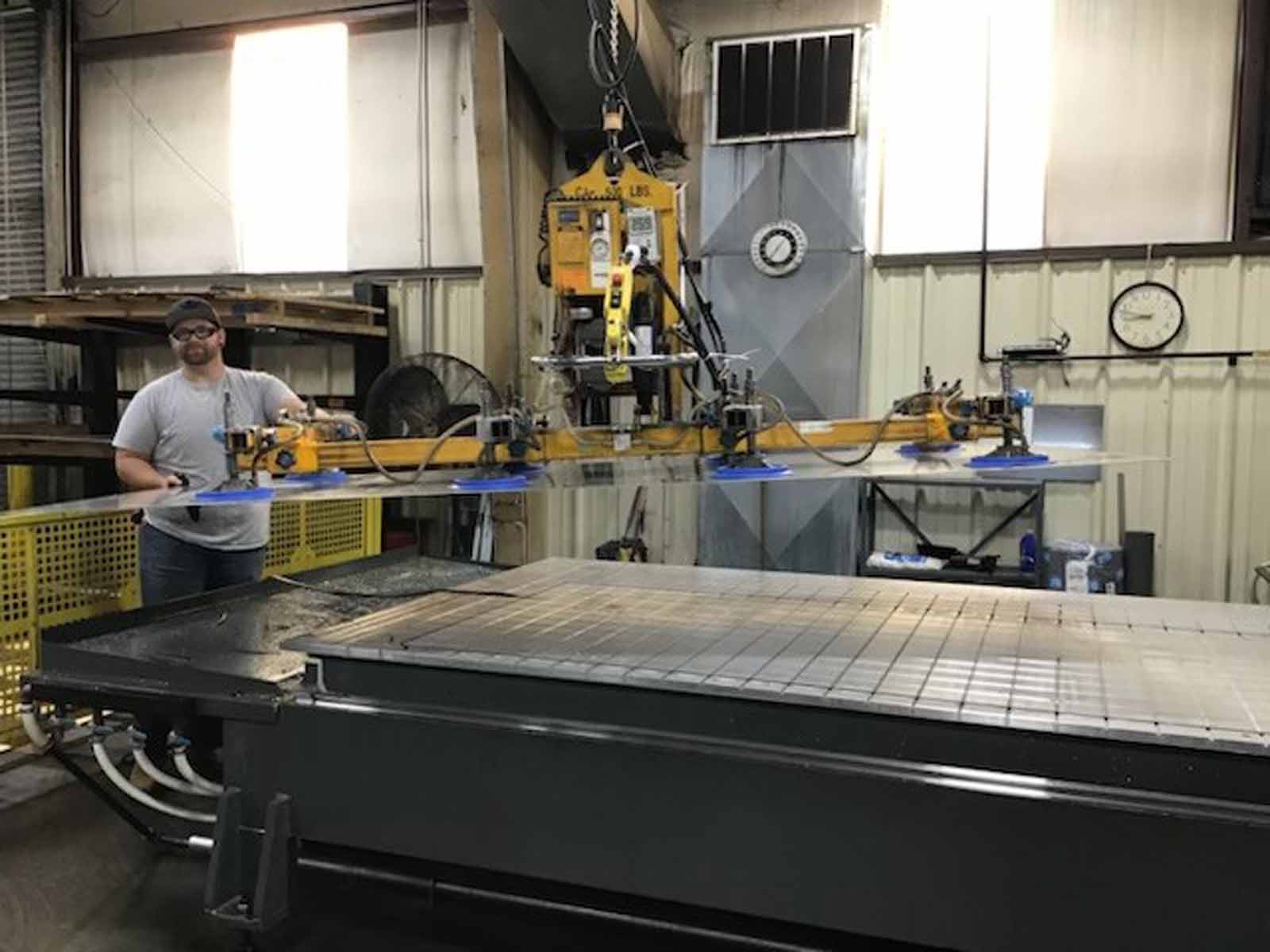
A conversation with Innovation Industries CEO Paul Horney IV
photos by Scott Eastman
When your author caught up with Paul Horney IV, CEO of elevator fixture manufacturer Innovation Industries, it was on the tradeshow floor on September 26 — the last day of the United Convention & Exposition in Atlantic City — and Horney was anxious to get back to company headquarters (HQ) in Russellville, Arkansas, before the effects of Hurricane Helene started being felt. The storm made landfall as a powerful Category 4 in Florida late that night, winding its way up through the Southeast and leaving hundreds of people dead and financially devastated in its wake. Arkansas was mostly spared.
Upon learning this vertical-transportation (VT) CEO has many other interesting pursuits, your author instinctively wanted to write an Industry Profile about him. Horney wasn’t interested, however, instead choosing to talk about his thriving, growing company — its successes and challenges. Despite personal accomplishments, Horney is a focused, quietly energetic CEO who prefers to stay in the background, guiding his growing company on a continued growth trajectory. Following a recent visit to Innovation Industries’ Russellville HQ, an EW colleague reported that everyone from “the young lady at the front desk to the old timers in the fabrication shop” were impressively pleasant and professional. It was clear, he said, that company culture — which everyone knows starts at the top and trickles down — is positive and strong.
Ironically, Innovation Industries traces its roots to a family of New Mexico cattle ranchers and an old Dairy Queen on a decommissioned Air Force Base in Roswell, New Mexico (“From Dairy Queen to Fixture King,” ELEVATOR WORLD, May 2020). It was there the company began in 1972 with four partners who invented and patented an infrared photo detection system to protect elevator passengers from closing doors called the Duo-Path® 1004. Later in the 1970s, the men behind Innovation Industries obtained a loan from Horney’s grandmother, the late Zola Horney (EW, October 2014). When they couldn’t pay it back, they offered Zola Horney shares in Innovation Industries, and the Horney family destiny shifted from cattle to VT.
By 1980, Duo-Path had become popular with OEMs, particularly Dover, later acquired by what was then thyssenkrupp, which included the technology as standard in most elevator packages. Fueled by this demand, Innovation Industries moved from the old Dairy Queen in New Mexico to new, larger space in Arkansas in 1980 to be closer to suppliers and customers. Shortly after that, a request for fixtures for a small job would change the company’s trajectory yet again, ushering in a new era that would see fixtures becoming its main product. The company now provides more than 75 different elevator button options, and its fixtures can be found in many recognizable locations throughout the U.S. — Target stores, stadiums, Hollywood sets and national museums in Washington, D.C., to name a few.
Since acquiring VC in September 2019, we have been working to hire engineers and computer science graduates to replace retiring staff, as well as to beef up our existing engineering and development capacity.
— Paul Horney IV, CEO, Innovation Industries
Organic growth has been consistently robust, but Innovation Industries has also grown through acquisitions: It purchased fixture manufacturer Monitor Elevator Products of Hauppauge, New York, in 2014; and Virginia Controls (VC) of Richmond, Virginia, in 2019. That acquisition brought Innovation Industries into yet another new product category: Elevator controls. VC’s flagship product is the Vision 2.0, a full serial-communication controller based on a simplified installation protocol.
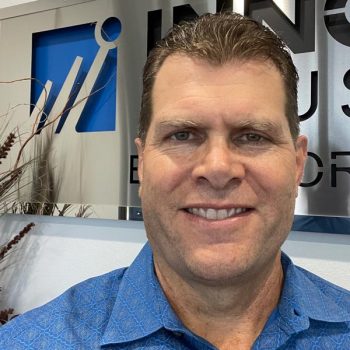
Horney has been CEO for 24 years now, previously serving as manufacturing manager and general manager. He holds an electrical engineering degree from New Mexico State University and an MBA from the University of Arkansas at Little Rock. During the United Convention, Horney (PH) spoke with your author (KW) about the company’s status, future direction and challenges.
KW: What is Innovation Industries’ current total physical footprint? Are any expansions underway?
PH: Innovation currently has 69,000 ft2 under one roof in the manufacturing area and an 8,000-ft2 administrative office area that is separate but connected via an enclosed breezeway. So, we occupy a total of 77,000 ft2. We are building a new warehouse that will be a separate, 6,000-ft2 metal building dedicated to sheet metal storage.
KW: You mentioned that VC had been in rental space, but that you like to own property. Please tell me about VC’s new location.
PH: We moved VC to our newly acquired facility in June. VC occupies 17,000 ft2 of one building, which is a total of 27,000 ft2. We are leasing out the remaining space in that building, as well as 9,000 ft2 in a separate building on the property. Our goal is to grow and eventually use the entire 36,000 ft2 of space for VC operations.
KW: How many are employed at each division of Innovation and are you hiring?
PH: Innovation has 225, Monitor, 75, and VC, 35. Yes, we are hiring. The company puts a lot of focus on recruiting talent in engineering and drafting. Since acquiring VC in September 2019, we have been working to hire engineers and computer science graduates to replace retiring staff, as well as to beef up our existing engineering and development capacity. We have hired two recent computer science graduates, one electrical engineering graduate and three experienced engineers. We are currently looking to hire two more engineers. We have the jobs posted on Indeed.
KW: Do any other Horney family members work for the company?
PH: My youngest son, Jacob, an electrical engineer, has worked at VC since March 2022. My oldest son, Aaron, a computer science graduate, started working at Innovation in 2023.
KW: What is the product focus of each division?
PH: Innovation, fixtures nationwide; Monitor, fixtures for the East Coast; and VC, traction and hydraulic controls, PLC-based specialty controllers, the MH 3000 discrete controller and the Vision 2.0 serial controller.
KW: What are your company’s biggest challenges right now?
PH: Integrating new ERP (enterprise resource planning) software across all three companies has been a major challenge. Additional challenges are hiring and retaining qualified candidates in all three locations, as well as maintaining our high level of customer service while growing all three operations.
KW: Why do you think it’s important to consistently stay involved in industry associations such as NAEC?
PH: Organizations like NAEC provide a common meeting point for elevator industry stakeholders. It gives us a resource to stay in contact with the elevator community, grow our networks and focus on common interests that improve the industry.
KW: To what do you attribute the company’s success?
PH: I’ve been blessed with very good people across all companies who focus on providing the best customer service possible.
Get more of Elevator World. Sign up for our free e-newsletter.
